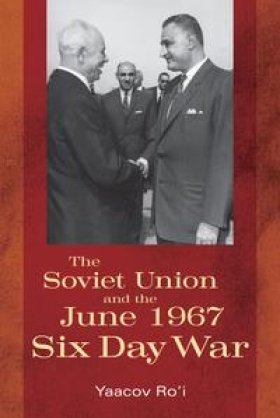The Soviet Union and the June 1967 Six Day War


Click here for more information from Woodrow Wilson Center Press.
Why did the Soviet Union spark war in 1967 between Israel and the Arab states by falsely informing Syria and Egypt that Israel was massing troops on the Syrian border? Based on newly available archival sources, The Soviet Union and the June 1967 Six Day War answers this controversial question more fully than ever before. Directly opposing the thesis of the recently published Foxbats over Dimona by Isabella Ginor and Gideon Remez, the contributors to this volume argue that Moscow had absolutely no intention of starting a war. The Soviet Union’s reason for involvement in the region had more to do with enhancing its own status as a Cold War power than any desire for particular outcomes for Syria and Egypt.
In addition to assessing Soviet involvement in the June 1967 Arab-Israeli Six Day War, this book covers the USSR’s relations with Syria and Egypt, Soviet aims, U.S. and Israeli perceptions of Soviet involvement, Soviet intervention in the Egyptian-Israeli War of Attrition (1969–70), and the impact of the conflicts on Soviet-Jewish attitudes. This book as a whole demonstrates how the Soviet Union’s actions gave little consideration to the long or mid-term consequences of their policy, and how firing the first shot compelled them to react to events.
Yaacov Ro’i is professor emeritus of history at Tel Aviv University. Boris Morozov is Research Fellow at the Cummings Center for Russian and East European Studies at Tel Aviv University.

Cold War International History Project
The Cold War International History Project supports the full and prompt release of historical materials by governments on all sides of the Cold War. Read more




